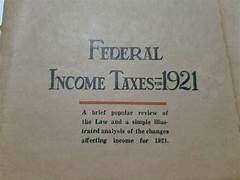On August 13, 1979, the United States Congress was in session, carrying out its legislative duties and responsibilities. The U.S. Congress, composed of two chambers – the Senate and the House of Representatives – is the legislative branch of the federal government and plays a crucial role in shaping the laws and policies of the nation.
During this particular day, Congress was engaged in a variety of activities, including committee hearings, debate on proposed legislation, and voting on important bills. The legislative process involves a series of steps, and on August 13, 1979, Congress was diligently working through these steps to fulfill its constitutional duties.
Committee hearings are an integral part of the legislative process, and on this day, various committees were likely holding hearings to gather information, conduct investigations, and hear testimony from experts, stakeholders, and citizens. These hearings provide an opportunity for lawmakers to gather insights and make informed decisions on issues of national importance.
Additionally, members of Congress were engaged in floor debates in both the Senate and the House of Representatives. These debates offer a platform for lawmakers to present their views, engage in discussion, and persuade their colleagues on the merits of proposed legislation. On August 13, 1979, lawmakers would have been passionately advocating for their positions and engaging in robust discussions to shape the outcome of pending bills.
One of the critical functions of Congress is the passage of legislation. On this day, members of Congress were actively voting on bills, either approving or rejecting them. These bills could cover a wide range of issues, from healthcare and education to defense and economic policy. Each vote has the potential to significantly impact the lives of Americans, and lawmakers take their voting responsibilities seriously.
Beyond the legislative process, Congress also performs oversight functions to ensure the effective functioning of the executive branch. Through various committees, lawmakers have the power to investigate government agencies and hold hearings to examine their actions and policies. This oversight role ensures transparency, accountability, and the proper functioning of the federal government.
While the specific activities and legislation on August 13, 1979, may not be readily available, it is important to recognize the vital role that Congress plays in the democratic governance of the United States. Congress acts as a check and balance on the executive branch, representing the interests and concerns of the American people.
The work of Congress extends beyond a single day, as lawmakers continuously engage in the legislative process and address the needs and aspirations of the nation. Their efforts shape the laws and policies that govern the country, impacting the lives of millions of Americans.






